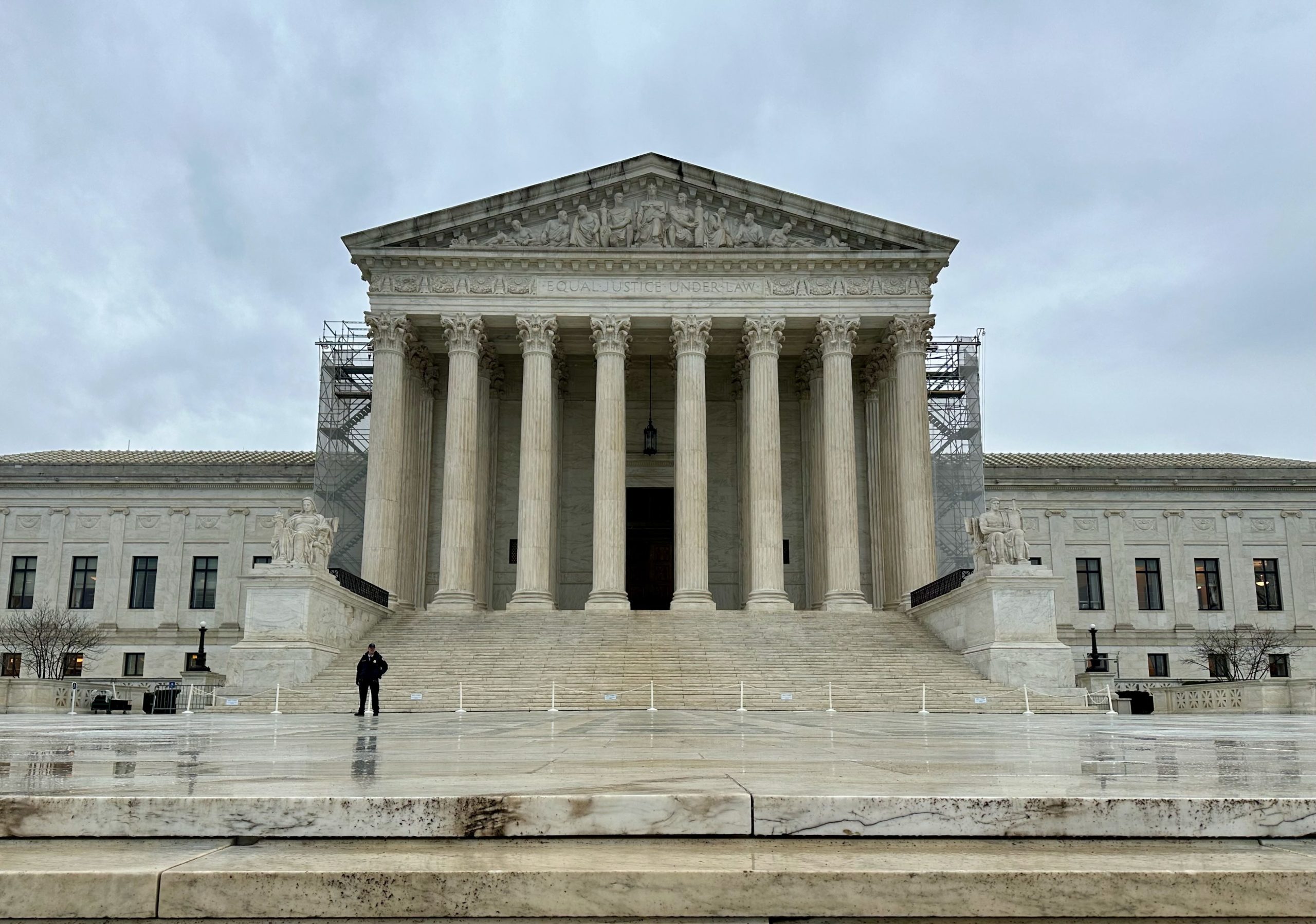Trump asks court to allow firing of watchdog agency official


This article was updated on Feb. 18 at 12:37 p.m.
The Trump administration on Sunday asked the Supreme Court to block an order by a federal judge in Washington, D.C., that would require the president to temporarily reinstate the head of an independent agency tasked with protecting federal employees, and in particular whistleblowers, from retaliation. The order by U.S. District Judge Amy Berman Jackson, Acting Solicitor General Sarah Harris told the justices, was an unprecedented assault on the separation of powers that warrants immediate relief.
The court has instructed Dellinger to respond by Wed., Feb. 19, at 2 p.m. It did not act on the Trump administration’s request for an immediate administrative stay.
Sundays filing was the first time that the Supreme Court has been asked to intervene in one of the lawsuits filed to challenge actions taken by Trump and his administration since his inauguration on Jan. 20.
President Donald Trump fired Hampton Dellinger, the head of the Office of Special Counsel, on Feb. 7. Dellinger was appointed by then-President Joe Biden and confirmed by the Senate for a five-year term beginning in 2024. The watchdog agency protects whistleblowers inside the government, independent from the sitting president. It is not related to DOJ special counsels like Jack Smith. Under the federal law creating the Office of Special Counsel, Dellinger could be removed by the president from his job only for inefficiency, neglect of duty, or malfeasance in office.
The email dismissing Dellinger did not cite any reason for his removal.
Dellinger went to federal court in Washington, D.C., to challenge his firing. On Feb. 10, Jackson issued an administrative stay an order to maintain the status quo to give courts time to rule on a request that reinstated Dellinger as special counsel, barred the Trump administration from taking any steps to keep him from doing his job, and prohibited the president from appointing anyone else as the special counsel.
The U.S. Court of Appeals for the District of Columbia Circuit turned down the Trump administrations request to block Jacksons administrative stay, holding that it lacked the legal power to review the governments appeal.
On Feb. 12, Jackson issued a temporary restraining order that reinstated Dellinger for 14 days.
On Saturday night, the D.C. Circuit once again ruled that it lacked the power to review the governments appeal. It reasoned that although preliminary injunctions which provide relief while litigation continues unless overturned by another court can be appealed, temporary restraining orders generally are not appealable.
Judge Greg Katsas, a Trump appointee, dissented from that ruling. He argued that even if most temporary restraining orders cannot be appealed, this TROwhich orders the President to recognize the authority of an agency head whom he has formally removedqualifies for immediate review.
The Trump administration then came to the Supreme Court on Sunday night, asking the justices to intervene. Harris also requested an immediate administrative stay while the justices consider her request.
Until now, as far as we are aware, Harris wrote, no court in American history has wielded an injunction to force the President to retain an agency head whom the President believes should not be entrusted with executive power and to prevent the President from relying on his preferred replacement.
The executive branch has for nearly five decades, Harris noted, believed that the restrictions on the presidents ability to remove the special counsel violate the Constitution, because the power to make decisions about investigations and prosecutions falls squarely within the presidents power as the head of the executive branch.
As a general rule, Harris continued, the president can remove senior officials whenever he wants. Indeed, in two recent cases, Harris added, the Supreme Court has held that restrictions on the presidents power to remove the solo heads of the Consumer Financial Protection Bureau and the Federal Housing Finance Agency violate the Constitution. Based on those decisions, she observed, Biden in 2021 removed the head of the Social Security Administration.
Harris also pushed back against any suggestion that the court should stay out of the dispute because of the TROs limited duration. Even if the TRO only lasts for two weeks, she insisted, it still raises grave issues of democratic legitimacy and electoral accountability. No one, she wrote, would seriously contend that a district courts temporary restraining order enjoining the President from issuing a pardon, making a nomination, or recognizing a foreign sovereign was tolerable simply because the court stymied the President for only two weeks. And Jacksons order, she emphasized, not only prohibits Trump from firing Dellinger, but also takes away his power even to fire him for causea demand for judicial preclearance that represents a further and unprecedented intrusion on presidential oversight of the Executive Branch.
As evidence of the gravity of the situation created by Jacksons order, Harris pointed to what she characterized as a broader, weeks-long trend in which plaintiffs challenging President Trumps initiatives have persuaded district courts to issue TROs that intrude upon a host of the Presidents constitutional powers, including an order by a federal judge in New York that prohibits members of the Department of Government Efficiency from accessing data at the Treasury Department and an order by a federal judge in Washington, D.C., that requires the Trump administration to pause its freeze of funding for programs run by the U.S. Agency for International Development around the world. But the Trump administration has only come to the Supreme Court to challenge this TRO, Harris stressed, because it intrudes so deeply into the powers delegated to the president by the Constitution.
The Trump administrations request goes first to Chief Justice John Roberts, who handles emergency appeals from the District of Columbia. He can either act on it himself or (as is more common) refer it to the full court.
Posted in Emergency appeals and applications
Cases: Bessent v. Dellinger
